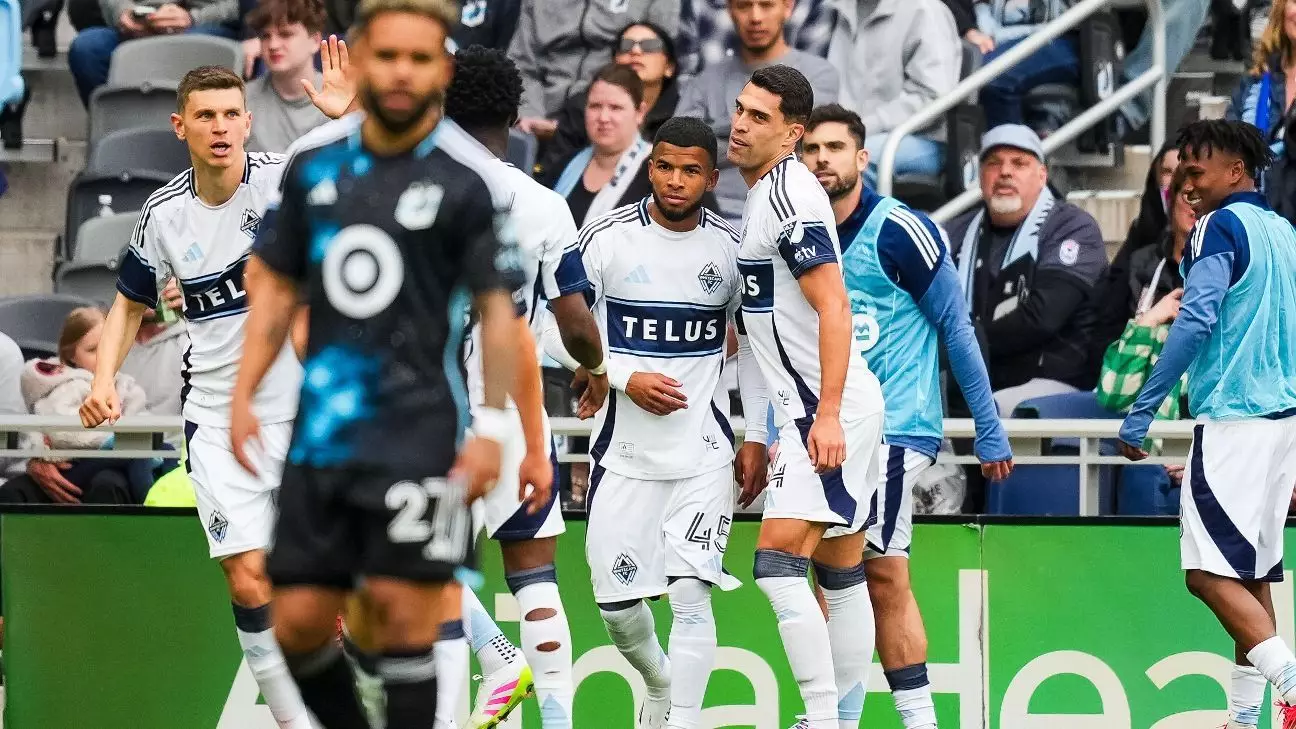In a world where the passion of sports should transcend barriers, an unsettling incident during a recent MLS match raises serious questions about the league’s commitment to tolerance. The clash between Minnesota United FC and the Vancouver Whitecaps ended in a 3-1 victory for Vancouver, but it was the actions ensuing from the game that became the focal point for renewed discussions on discrimination in sports. Reports detail a verbal clash between Minnesota’s Joseph Rosales and Vancouver’s Emmanuel Sabbi that occurred in the game’s dying moments. This altercation caught the eye of referee Drew Fischer, who referenced the league’s Non-Discrimination Policy and initiated a dialogue with the managers and captains. However, despite the apparent seriousness of the situation, no sanctions were imposed on Rosales, leading to further questions about enforcement and accountability.
The Complexity of Accountability
The incident, seemingly trivial in nature, reflects a larger issue of accountability within the league. Just because the referee was unable to clearly identify the instigator does not absolve the problematic behavior that surfaced. It highlights a critical gap in how MLS manages these incidents and underpins the frustration felt by fans and players alike. This lack of decisive action leaves those who are victimized feeling neglected and powerless, and sends a mixed message about zero tolerance for harassment and discrimination. The Minnesota Star-Tribune’s report of Rosales’ prodding actions post-match only adds fuel to the fire, suggesting that the hostility did not dissipate with the final whistle.
Institutional Responses and Player Education
In the wake of such allegations, both MLS and Minnesota United’s responses are notable but insufficient in truly addressing the issue at hand. Minnesota United issued a statement condemning any form of harassment, which is necessary, but it’s merely a superficial acknowledgment of a deep-rooted problem. Statements like these, while crucial in publicly condemning inappropriate behavior, often lack the depth of action necessary to facilitate real change. Actions must follow words. The league’s previous disciplinary measures against players like Kai Wagner and Dante Vanzeir are steps taken in the right direction, yet they feel reactive rather than preventive.
Moreover, the training program rolled out in partnership with Black Players For Change and the MLS Players Association may signify progress towards inclusivity, yet it also raises skepticism about the underlying commitment within the player community. The notion that players, especially those from international backgrounds, may not be fully aware of what constitutes unacceptable behavior reflects a concerning gap in cultural understanding. While the league strives to educate, it begs the question: How effective will this education be if there are no immediate consequences for infractions when they occur?
The Importance of a Stronger Safeguard
This incident underlines a crucial need for MLS to revamp not only their policies but also the mentality surrounding discrimination in sports. The establishment of strong safeguards and mechanisms for reporting incidents—beyond a simple pamphlet on acceptable behavior—is vital. From mandatory workshops for players and staff to consequences that don’t merely exist on paper but are enforced transparently and publicly, there is a pressing need for MLS to evolve.
The reality is that sports are a mirror reflecting society. If discrimination exists in the broader context of cultural interactions, it is naive to think professional leagues will be immune. The commitment to eradicating discrimination must not only be resonated through statements and policies but reflected in a tangible, lasting impact on the culture of the league.
A Call for Cultural Transformation
Ultimately, what is required from Major League Soccer is not just band-aid solutions but a cultural transformation. This transformation needs to be rooted in a profound understanding of inclusivity and respect. True progress in the fight against discrimination will only come when both management and players engage in ongoing conversations that challenge the status quo and foster understanding across various backgrounds.
A volition towards real cultural change encompasses a degree of vulnerability that is often elusive in traditional sports spaces. MLS holds the unique opportunity to lead the charge towards a more inclusive environment—not just for their players but for fans who seek solace in the beautiful game. The time for silent complicity has passed; it’s the moment for unequivocal action. Only then can the potential that lies in the unifying spirit of sports truly be realized.

